Chapter 4: Agricultural and Forestry Resources
Purpose
Overview
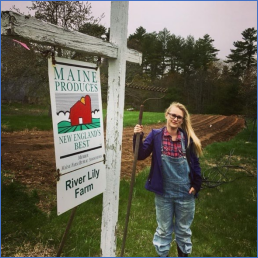
Agriculture and Forestry in Ogunquit
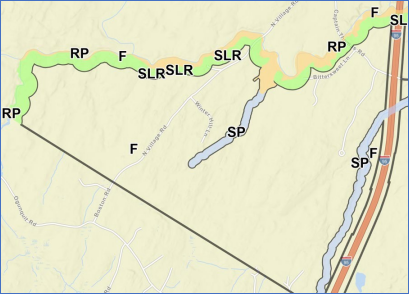
Regulation of Agriculture and Forestry Resources
State Forestry Regulations
Maine’s Tree Growth Tax Program, a Statewide property tax program, incentivizes the encumbrance of forested areas with a designation that removes the ability to develop the land, but allows limited harvesting of tress for use in commercial products; in return, owners receive a property tax subsidy. To enter the program, the following criteria must be met:
- Landconsists of at least 10 forested acres;
- Landis encumbered by a Forest Management Plan;
- ForestManagement Plan must be updated and recertified every 10 years; and
- Typesof forest production permitted (such as maple syrup, firewood, Christmas trees).
Local Forestry Regulations
Zoning Code Section 225-9.21, Timber harvesting outside of Shoreland Zone, states:
Forest management activities outside of the Shoreland Zone shall meet the following standards:
- Within the public right-of-way of any new or proposed entrance onto a public way, a culvert approved by the Director of Public Works may be required to ensure that the natural flow of drainage water will not be interrupted and to protect the shoulder of the public
- Whereyarding and loading operations are conducted within 50 feet of the right-of- way, all debris remaining after such operations shall be
removed and the ground restored to its original contour.
- Notificationmust be made to the Maine Forest Service by the owner, if
- Wheneverprovisions of this chapter are less stringent than the corresponding provisions of applicable federal, State, or municipal law or regulations, the more stringent provisions
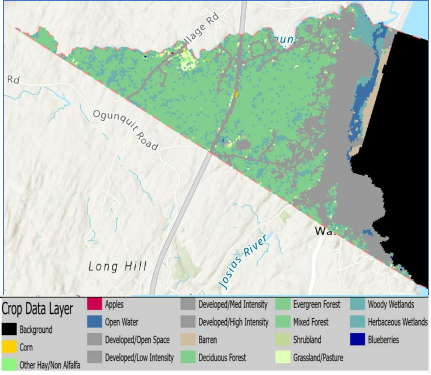
Land Trust Areas in Ogunquit
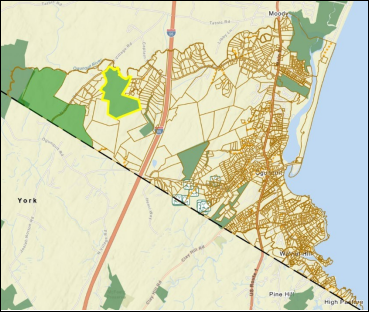
Local Agriculture Regulations
The Ogunquit Zoning Ordinance establishes a Farm (F) zoning district, the purpose statement for which reads as follows: To provide space for farming in the
Town of Ogunquit in locations capable of conveniently servicing the needs of such establishments and preserving open space in rural areas of the community without impacting negatively the established character of the Town or adjoining zoning districts.
For Agricultural uses, the Zoning Ordinance sets forth the following regulations in §225-9.2:
All spreading or disposal of manure shall be accomplished in conformance with the Maine Standards for Manure and Manure Sludge Disposal on Land, published by the University of Maine and Maine Soil and Water Conservation Commission in July 1972.
For Animal Husbandry uses, in §225.9-3:
- All pasture, barns, barnyards, and other areas where the livestock, animals, or fowl arekept, housed, fed, or cared for shall be a minimum of 100 feet from the nearest dwelling other than the applicant’s.
- Uncovered manure shall be kept 150 feet from the nearest dwelling other than theapplicant’s and 300 feet from any body of water or drinking water
- All feedand grain shall be stored in rodent-proof
- All paddocks, pastures, barnyards, or other enclosures must be adequately fenced tocontain livestock, animals, or
While there is only one commercial farm and no commercial forestry in Ogunquit, the Town values the open space provided by that farm and the community gardens, as well as the environmental and recreational advantages of the wooded lots.
For Forestry, the Zoning Ordinance, in §225-9.21, states:
Forest management activities outside of the Shoreland Zone shall meet the following standards:
- Within the public right-of-way of any new or proposed entrance onto a public way, aculvert approved by the Director of Public Works may be required to ensure that the natural flow of drainage water will not be interrupted and to protect the shoulder of the public
- Where yarding and loading operations are conducted within 50 feet of the right-of-way,all debris remaining after such operations shall be removed and the ground restored to its original contour.
- Notificationmust be made to the Maine Forest Service by the owner, if
- Wheneverprovisions of this chapter are less stringent than the corresponding provisions of applicable federal, state, or municipal law or regulations, the more stringent provisions
Local Regulatory Bodies

In 2011, the Town created a Conservation Commission, organized under Town Code Chapter 49. Article 49-6 sets out its duties as follows:
- Keeprecords of its meetings and activities and make an annual report to the Select
- Conductresearch, in consultation with the Planning Board, on undeveloped natural areas and open spaces within the Town of
- Seekto coordinate the activities of conservation bodies outside of the Town of Ogunquit organized for similar
- Keepan index of all open areas within the Town of Ogunquit, whether publicly or
privately owned, including, but not limited to, wetlands, meadows, and forests, for the purpose of obtaining information relating to the proper protection, development, or use of those open areas.
Article 49-8, sets the powers of the Commission, which includes among others:
- Recommend to the Town Meeting acquisition of lands for use as conservation land or awildlife commons, as defined by this chapter and according to the procedure set forth
When authorized by the Select Board, manage conservation land or wildlife commons acquired by the Town of Ogunquit for conservation purposes.

Finally, Ogunquit has created a Sustainability Committee, which has focused on preserving the future of the Ogunquit River estuary and has highlighted the importance of our forests in protecting wetlands within the town.
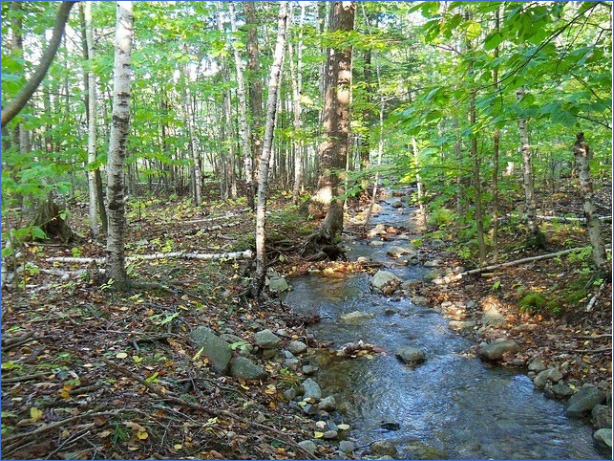
Goals, Policies and Strategies
Goal
- Toprotect and preserve Town farms and open space that could become
- Toprotect remaining forested areas from development that could threaten that
- Toplant more trees on Town owned properties and encourage residents to do the
Policies:
- Tosupport, safeguard and preserve Town farms and open space that could become
- Tosafeguard remaining forested areas from development that could threaten those
- Toencourage the planting of more trees where feasible.
Strategies:
- Priority: 1-5 with 1 being the highest priority.
Description | Priority | Responsibility |
Limit development along streams/rivers. | 1 | Planning Board |
Analyze and make recommendations for protecting more land in Shoreland zones. | 2 | Conservation Commission |
Limit non-residential development in critical rural areas to natural resource-based businesses and services, nature tourism/outdoor recreation businesses, farmers’ markets, and home occupations. (Revise OZO contract zoning). | 3 | Planning Board |
Amend land use Ordinances to require commercial or subdivision developments in critical rural areas, if applicable, to maintain areas with prime farmland soils as open space to the greatest extent practicable. | 4 | Planning Board |
Analyze and make recommendations regarding cutting trees, including enforcement measures. | 5 | CEO |
Analyze and make recommendations to retain and/or attract more farms. |
| Sustainability Committee |
Add language to OZO 225-9.2 requiring the Planning Board to consult with the Maine Forest Service district forester when developing any land use regulations pertaining to forest management practices as required by State statute. |
| Planning Board |
Add language to OZO 225-9.19 to permit land use activities that support productive agriculture and forestry operations, such as roadside stands, greenhouses, firewood operations, sawmills, log buying yards, and pick-your-own operations. |
| Planning Board |
Include agriculture, commercial forestry operations, and land conservation that supports them in local or regional economic development plans. |
| Town Manager |
Consult with Soil and Water Conservation District staff when developing any land use regulations pertaining to agricultural management practices. |
| CEO |
Encourage owners of productive farm and forest land to enroll in the current use taxation programs. |
| Town Assessor |
Include agriculture, commercial forestry operations, and land conservation that supports them in local or regional economic development plans. |
| Town Manager |